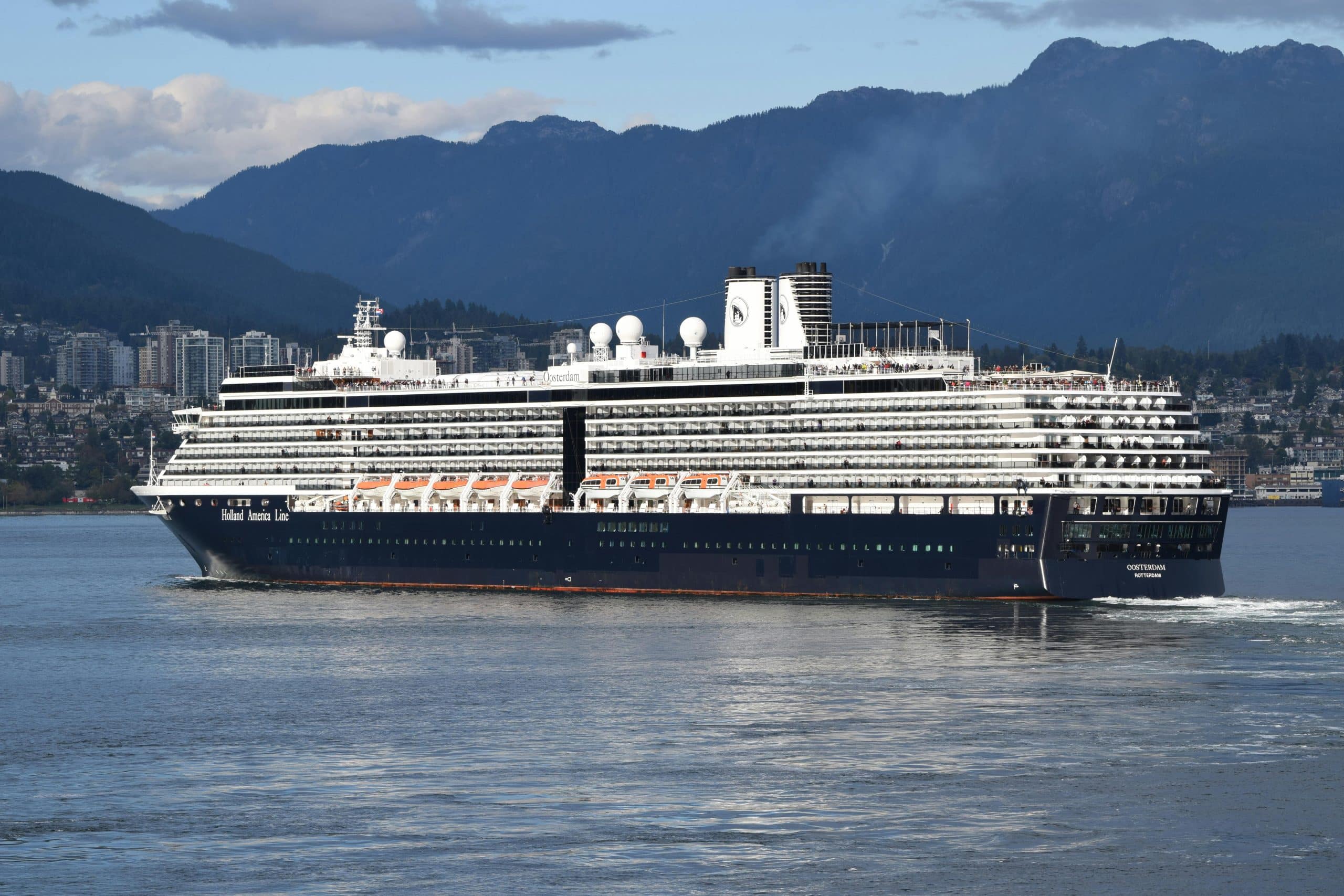What are the most eco-friendly cruising options available around the UK’s protected marine areas?

The maritime industry has been under the magnifying glass recently, with a spotlight on its environmental impact. This scrutiny is particularly acute in the cruise sector, given its popularity as a form of tourism. While the industry has made strides in reducing its environmental footprint, it still confronts significant challenges. But as consumers become more environmentally conscious, the demand for sustainable cruising options has surged. So, what are the most eco-friendly options for those who want to cruise around the UK’s protected marine areas?
The Environmental Impact of Cruises
There’s no denying the allure of a cruise. The panoramic views of the water, the soothing rhythm of the waves, and the sense of adventure that comes with exploring new places. However, these ships, while providing a unique travel experience, also contribute to environmental challenges.
A lire également : How to find a cruise offering detailed educational programs about the UK’s marine biodiversity?
Each ship's operation involves burning fuel for propulsion and energy, which results in carbon emissions. They also produce waste, including sewage, solid waste, and oily bilge water. The disposal of these waste products can have detrimental effects on marine environments, especially in protected areas.
Cruise lines are aware of these issues and have taken steps to mitigate their impact. From using more efficient fuels to investing in waste management systems, these businesses realise that sustainability isn't just good for the environment, but also for their bottom line.
Cela peut vous intéresser : What are the best UK cruises for experiencing traditional Highland games on shore?
Sustainable Fuel Options
A significant portion of a cruise ship’s environmental impact comes from its fuel. Traditionally, ships have used heavy fuel oil (HFO), a byproduct of the oil refining process that emits substantial amounts of carbon dioxide, sulphur oxides, and particulate matter when burned. To reduce these emissions, some cruise lines are switching to cleaner-burning fuels.
One emerging alternative is liquefied natural gas (LNG). This fuel emits virtually no sulphur oxides and significantly less nitrogen oxides and carbon dioxide than HFO. Several major cruise lines, including Carnival Corporation, Royal Caribbean, and Norwegian Cruise Line, have already introduced LNG-powered ships into their fleets.
In addition to LNG, some cruise lines are exploring the use of biofuels. These fuels, derived from organic materials such as plants, emit fewer greenhouse gases than fossil fuels. They also have the potential to be produced sustainably, further reducing their environmental impact.
Waste Management Practices
Another significant source of a cruise ship’s environmental footprint is its waste production. Each day, a cruise ship can generate tons of waste, including food waste, plastic, and hazardous materials. Managing these waste streams effectively is crucial to minimizing their impact on the environment.
Many cruise lines have implemented comprehensive waste management programs, aiming to reduce, reuse, and recycle wherever possible. They work with suppliers to reduce packaging, donate unused food to local communities, and recycle materials onboard.
Water treatment systems on modern cruise ships are also advanced. They treat wastewater to a high standard before discharging it into the sea. Some even go beyond regulatory requirements, achieving near-drinking water quality before release.
Eco-Friendly Cruise Lines
Several cruise lines have made substantial efforts towards sustainability, earning them a reputation as eco-friendly options for travellers. These companies have gone beyond meeting regulatory requirements, implementing innovative practices to reduce their environmental footprint.
One such company is Hurtigruten. This Norwegian cruise line has committed to becoming completely emission-free. It has introduced the world’s first hybrid electric-powered cruise ship, reducing CO2 emissions by 20%. The company has also eliminated single-use plastics from all its ships and offers educational programs for passengers about marine conservation.
Also notable is Lindblad Expeditions, a line that has partnered with National Geographic to offer environmentally-focused cruises. Lindblad's ships are smaller, reducing the environmental impact, and the company offsets 100% of its carbon emissions.
Cruising in Protected Marine Areas
Cruising in protected marine areas comes with its own set of challenges. These areas, rich in biodiversity, are particularly sensitive to the impacts of tourism. However, several cruise lines have shown that it's possible to operate in these areas in a way that minimises impact.
These companies follow strict protocols when cruising in protected areas. They ensure that all waste is appropriately managed, that noise and light pollution are reduced, and that wildlife is not disturbed. Educational programs on board often highlight the importance of these areas and the need for their protection.
In the UK, several eco-friendly cruising options are available around the nation’s protected marine areas. These include companies like Hebridean Island Cruises, which operates small, luxury cruises around the Scottish islands, and Cruise and Maritime Voyages, which offers wildlife-focused cruises around the British Isles. Both companies demonstrate a commitment to sustainable practices and conservation.
As you ponder your next cruise vacation, remember that the choices you make can have a significant impact. Selecting an eco-friendly cruise line is a crucial step towards sustainable tourism. While there are challenges in this industry, there are also opportunities, and with your help, we can ensure that cruising remains a beloved pastime for generations to come.
MSC Group's Pioneering Green Initiatives
MSC Group, one of the world's leading cruise operators, has been at the forefront of the industry's journey towards sustainability. Recognising the significant environmental impact of their operations, the Group has implemented several green initiatives that set them apart from their competitors.
One of the most notable developments has been the adoption of shore power technology across their fleet. This allows cruise ships to shut off their engines and connect to local electrical grids while docked, reducing both noise and carbon emissions. The MSC Group has also made significant investments in Advanced Air Quality Systems, which capture and remove sulphur and other pollutants from the ship’s exhaust gases.
Furthermore, MSC Cruises, the cruise division of the MSC Group, has committed to a zero-emissions future by investing in advanced green technologies and working to offset all direct carbon emissions through blue carbon projects. The brand has also spearheaded the use of Next-Generation Biofuel in its ships, a blend of used cooking oil and other waste, which significantly reduces carbon emissions.
In terms of waste management, MSC Cruises has implemented a comprehensive waste management and recycling system. They comply with the strictest regulations, like the international MARPOL Convention for the prevention of pollution from ships. MSC also plans to install ballast water treatment systems on all its ships, further promoting marine conservation around protected areas.
The Future of Sustainable Cruising
While the cruise industry has made significant strides in reducing its environmental impact in recent years, there is still much work to be done. However, the industry's commitment to sustainable tourism is clear. From adopting cleaner fuels and waste management practices to investing in new technologies and educating passengers on marine conservation, cruise lines are taking substantial steps to protect our planet.
Royal Caribbean, for instance, has invested heavily in shipbuilding innovations to reduce its carbon footprint, such as air lubrication systems that create a carpet of microbubbles along the hull of a ship to reduce drag and therefore fuel consumption. They are also committed to reducing their greenhouse gas emissions intensity by 35% by 2030.
For the future, a sustainable cruise industry will likely rely on a combination of continued innovation, stringent regulation, and passenger preference for more eco-friendly options. As highlighted by the efforts of companies like Hurtigruten, Lindblad Expeditions, MSC Group, and Royal Caribbean, the industry is moving in the right direction. The adoption of sustainable practices and commitment to marine conservation are no longer a choice, but a necessity.
In conclusion, if you're considering exploring the UK's protected marine areas, there are numerous eco-friendly cruising options available. By choosing a sustainable cruise, travellers can play their part in preserving these precious ecosystems for future generations. Whether it's through reduced carbon emissions, efficient waste management, or support for marine conservation, every small step counts towards a greener future for the cruise industry.
